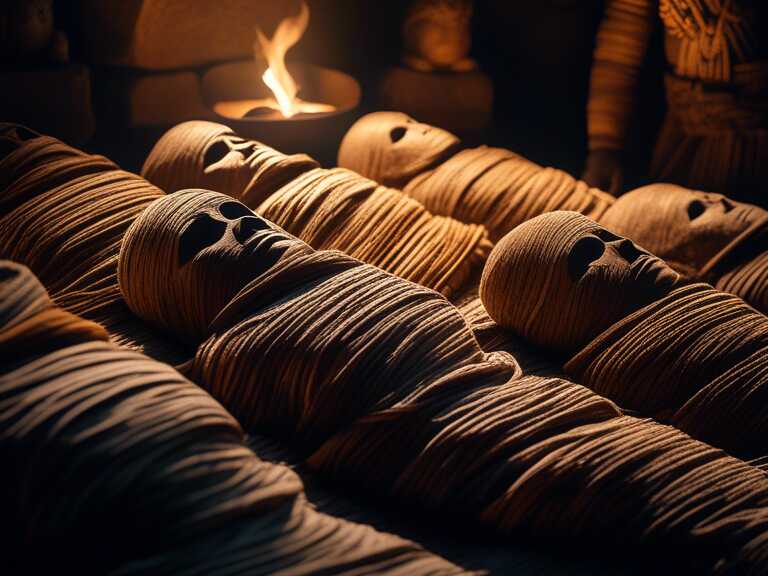
Chile's Ancient Mummies Face Risk from Climate Change and Human Development
Chile's Atacama Desert holds ancient mummies and artifacts, older than Egypt's, at risk from climate change and development, despite preservation efforts.

Chile's Atacama Desert is home to the Chincorro people, who began mummifying their dead 5,000 years ago, well before the ancient Egyptians. The arid desert has preserved mummified remains and other clues about the Chincorro people's way of life. The mummified bodies were adorned with reed blankets, clay masks, and human hair. While UNESCO has recognized the region as a World Heritage Site, the relics are at risk due to the effects of time, human activity, and climate change.
Climate Change Threat
A recent concern is the potential impact of climate change. According to Claudio LaTorre, a paleo-ecologist with the Catholic University of Chile, an increase in sea surface temperatures along the coast of northern Chile could lead to higher atmospheric humidity. This change could result in the decomposition of mummies and other relics that are currently preserved by the desert's dry conditions. This poses a significant risk to the preservation of these ancient artifacts and the valuable information they hold.
Efforts to Raise Awareness
Bernando Arriaza, a professor at the University of Tarapaca, is actively working to raise awareness about the threat to the mummies. He emphasizes the need for collective efforts and resources to preserve the site and its cultural treasures. Arriaza recognizes the challenges involved in this endeavor but remains committed to the preservation of the mummies and the heritage they represent.
Preservation Measures
While some mummies and relics are displayed in climate-controlled exhibits at museums like the Miguel de Azapa Archaeological Museum, many others remain hidden in the arid desert. The need for increased preservation efforts is evident, as these artifacts are essential for understanding the history and culture of the Chincorro people.
Share news















